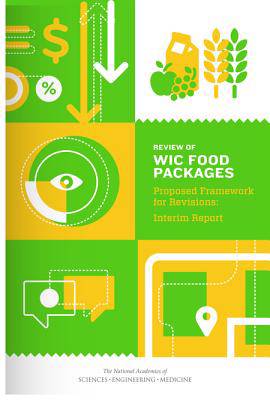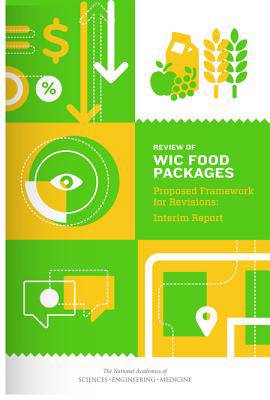
- Retrait gratuit dans votre magasin Club
- 7.000.000 titres dans notre catalogue
- Payer en toute sécurité
- Toujours un magasin près de chez vous
- Retrait gratuit dans votre magasin Club
- 7.000.0000 titres dans notre catalogue
- Payer en toute sécurité
- Toujours un magasin près de chez vous
Review of Wic Food Packages
Proposed Framework for Revisions: Interim Report
National Academies of Sciences Engineering and Medicine, Institute of Medicine, Food and Nutrition Board, Committee to Review Wic Food PackagesDescription
The Special Supplemental Nutrition Program for Women, Infants, and Children (WIC) began 40 years ago as a pilot program and has since grown to serve over 8 million pregnant women, and mothers of and their infants and young children. Today the program serves more than a quarter of the pregnant women and half of the infants in the United States, at an annual cost of about $6.2 billion. Through its contribution to the nutritional needs of pregnant, breastfeeding, and post-partum women; infants; and children under 5 years of age; this federally supported nutrition assistance program is integral to meeting national nutrition policy goals for a significant portion of the U.S. population.
To assure the continued success of the WIC, Congress mandated that the Food and Nutrition Service of the U.S. Department of Agriculture (USDA) reevaluate the program's food packages every 10 years. In 2014, the USDA asked the Institute of Medicine to undertake this reevaluation to ensure continued alignment with the goals of the Dietary Guidelines for Americans. This, the second report of this series, provides a summary of the work of phase I of the study, and serves as the analytical underpinning for phase II in which the committee will report its final conclusions and recommendations.
Spécifications
Parties prenantes
- Auteur(s) :
- Editeur:
Contenu
- Nombre de pages :
- 586
- Langue:
- Anglais
Caractéristiques
- EAN:
- 9780309380003
- Date de parution :
- 06-08-16
- Format:
- Livre broché
- Format numérique:
- Trade paperback (VS)
- Dimensions :
- 152 mm x 226 mm
- Poids :
- 929 g







